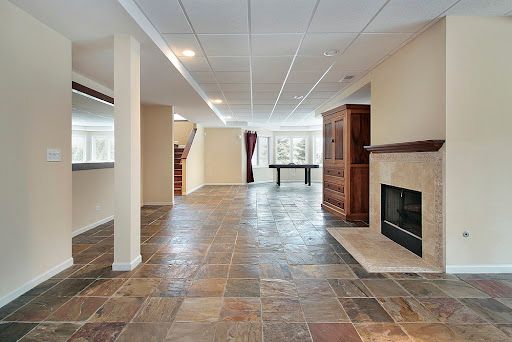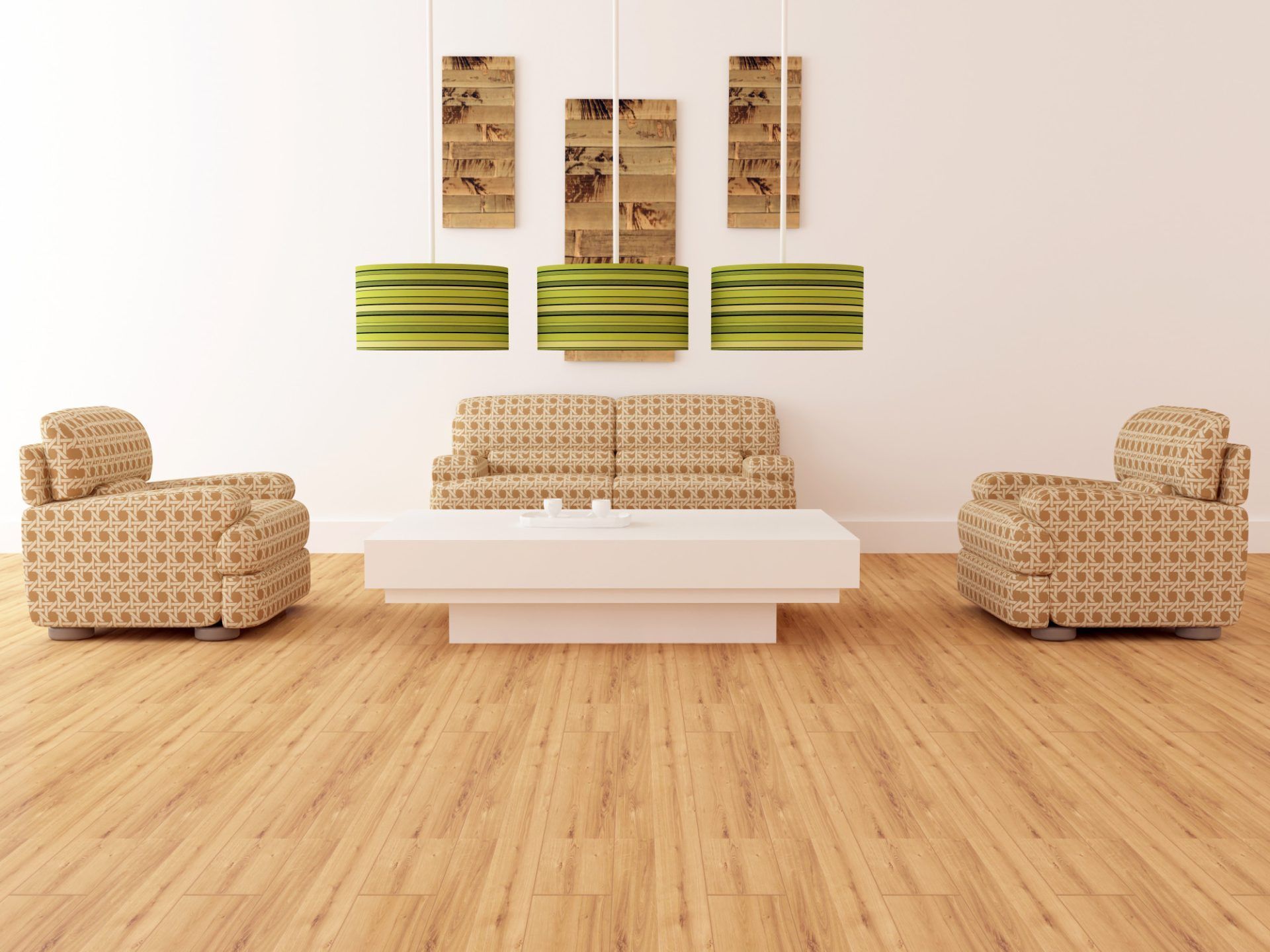Living in Phoenix brings unique challenges for keeping your home free of dust and allergens. The dry climate and occasional dust storms can make it tough to maintain clean indoor air. Your choice of flooring plays a big role in managing these issues.
The right flooring can help reduce allergens in your home and make cleaning easier. Some types trap less dust and are simpler to keep clean. This can make a big difference for your health and comfort, especially if you have allergies.
Picking the best flooring for dust control in Phoenix requires weighing several factors. You'll need to think about how easy it is to clean, how well it resists allergens, and how it fits your lifestyle. We'll explore your options and give you tips to keep your home as dust-free as possible.
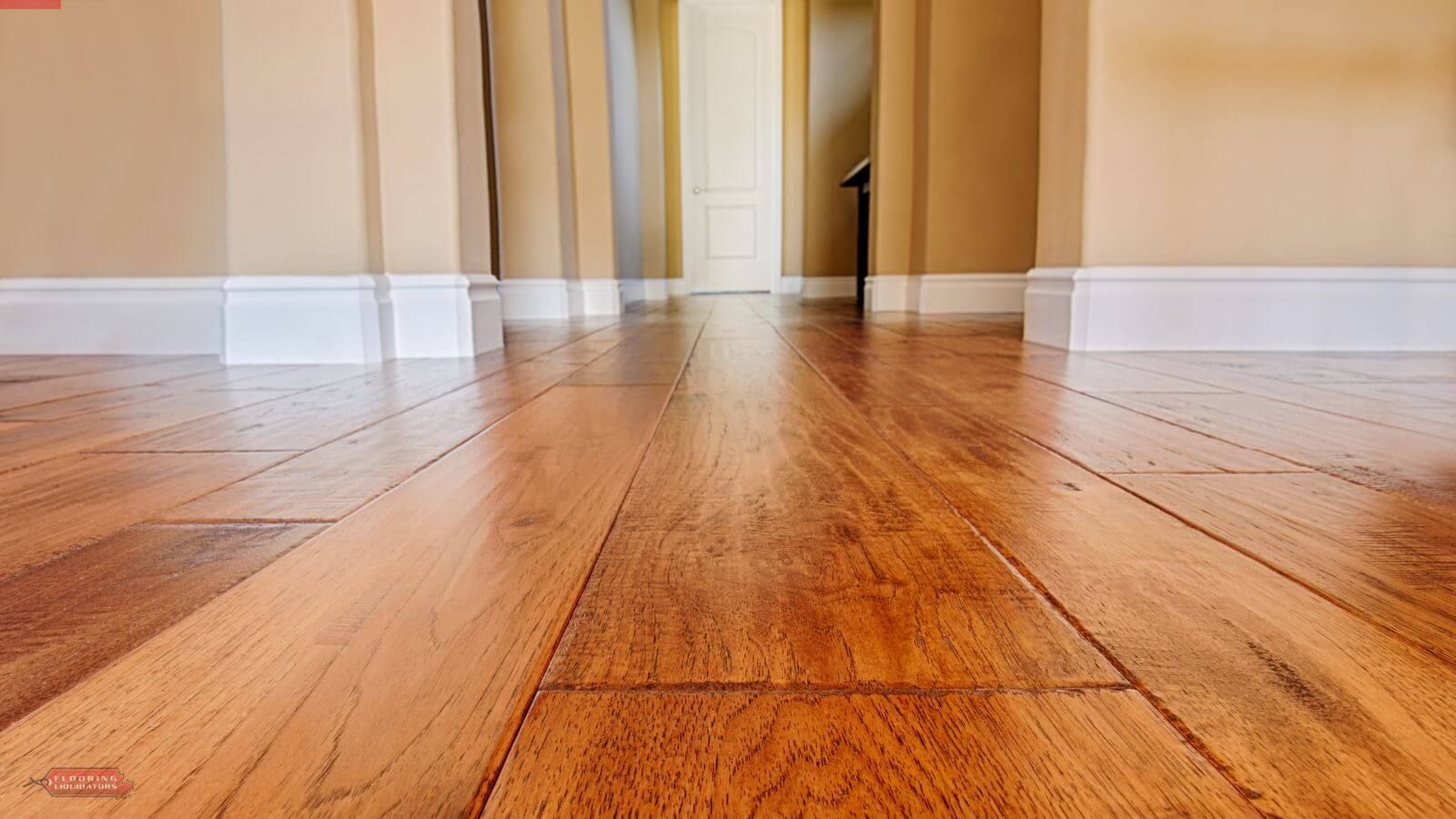
Understanding Allergens in Phoenix
Phoenix's unique climate and environment create specific allergy challenges. Dust and indoor allergens are major concerns for residents. Knowing what triggers allergies can help you manage symptoms better.
Impact of Phoenix Climate on Dust and Allergens
Phoenix's dry desert air makes dust a big problem. The lack of rain lets dust build up easily. Strong winds can stir up dust, spreading it around. This affects your allergies.
Hot weather makes pollen worse too. Trees, grass, and weeds release more pollen in warm temps. Common culprits include:
- Mulberry trees
- Olive trees
- Bermuda grass
- Ragweed
The long, hot summers in Phoenix mean a longer allergy season. You might deal with symptoms for more months of the year than in other places.
Common Indoor Allergens in the Southwest
Your home can trap allergens, even with closed windows. Dust mites, pet dander, and mold are common indoor triggers.
Dust mites thrive in bedding and furniture. They eat dead skin cells and love warm spots. Regular cleaning helps, but they're hard to get rid of completely.
Pet dander from cats and dogs is another big issue. It's light and sticky, so it gets everywhere. Even if you don't have pets, dander can come in on clothes.
Mold grows in damp areas like bathrooms and kitchens. The dry climate helps, but leaks or high humidity can still cause problems. Check for water damage regularly to prevent mold growth.
Flooring Types and Allergen Accumulation
Different flooring options have varying impacts on allergen buildup in Phoenix homes. Some materials trap fewer particles and are easier to clean, making them better choices for allergy sufferers.
Hardwood and Laminate Options
Hardwood and laminate floors are good choices for allergy sufferers. These smooth surfaces don't trap allergens like carpet fibers do. You can easily sweep or vacuum dust and pet dander from hardwood and laminate.
Hardwood floors need regular cleaning with a damp mop. Avoid excess water, as it can damage the wood. For laminate, use a dry or slightly damp mop to prevent warping.
Both options may need occasional refinishing or replacement of damaged planks. This helps maintain a sealed surface that resists allergen buildup.
Carpeting Concerns and Care
Carpets can trap allergens like dust mites, pollen, and pet dander. If you have carpets, frequent vacuuming is a must. Use a vacuum with a HEPA filter for best results.
Consider these tips for reducing allergens in carpeted areas:
- Vacuum 2-3 times per week
- Use a steam cleaner monthly
- Remove shoes at the door
- Keep pets out of bedrooms
Low-pile carpets are easier to clean than high-pile options. If you're sensitive to allergens, look for hypoallergenic carpet materials.
Tile and Vinyl Solutions
Tile and vinyl flooring are excellent hypoallergenic options. These surfaces don't harbor allergens and are simple to clean. Mop tile floors weekly with a mild cleaner. For vinyl, use a damp mop or cloth.
Grout lines in tile can collect dust. Seal grout yearly to make cleaning easier. Choose larger tiles to minimize grout lines.
Vinyl comes in many styles, including options that mimic wood or stone. It's affordable and resistant to moisture, making it ideal for bathrooms and kitchens where mold can be an issue.
Both tile and vinyl are durable, long-lasting choices that can help keep your Phoenix home allergen-free.
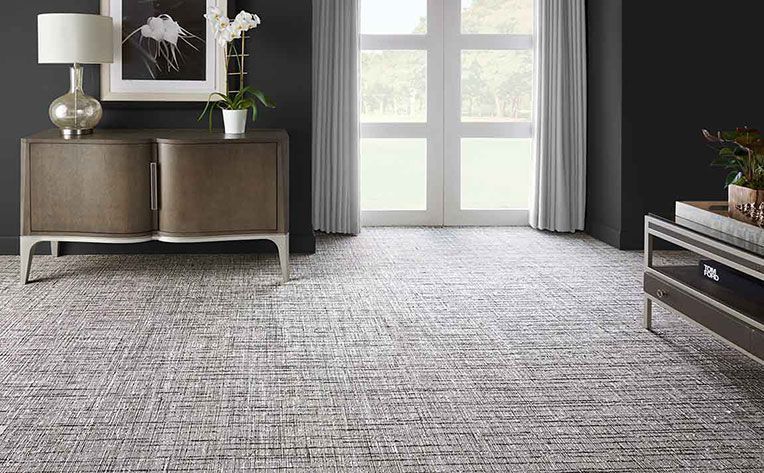
Best Practices for Minimizing Allergens
Keeping your home free from allergens requires a mix of cleaning, product choices, and humidity control. These steps can help reduce dust, pet dander, and other irritants in your living space.
Regular Cleaning Strategies
Vacuum your floors at least twice a week using a machine with a HEPA filter. This helps trap tiny particles that can trigger allergies. For hard floors, use a damp mop to pick up dust instead of just pushing it around.
Don't forget to clean your walls and ceilings. Dust can settle on these surfaces too. Use a microfiber cloth or duster with an extension pole to reach high spots.
Wash your bedding weekly in hot water (at least 130°F) to kill dust mites. This includes sheets, pillowcases, and blankets. Dust mites thrive in warm, humid environments, so this step is crucial for bedroom allergen control.
Choosing the Right Cleaning Products
Pick cleaning products that are fragrance-free and hypoallergenic. Strong scents can irritate your airways and make allergy symptoms worse. Look for labels that say "allergy-friendly" or "for sensitive skin."
Use microfiber cloths for dusting. They trap dust better than feather dusters or regular rags. Dampen the cloth slightly to improve its dust-catching ability.
For carpet cleaning, try baking soda. Sprinkle it on your carpet, let it sit for 15 minutes, then vacuum. This natural deodorizer can help absorb odors and some allergens.
Maintaining Optimal Indoor Humidity Levels
Keep your home's humidity between 30% and 50%. This range helps prevent dust mites and mold growth. Use a hygrometer to measure humidity levels in different rooms.
In dry climates like Phoenix, you might need a humidifier to add moisture to the air. Clean it regularly to prevent mold growth. In humid areas, use a dehumidifier to remove excess moisture.
Change your HVAC filters regularly to trap airborne particles. High-efficiency filters can catch smaller allergens. Check and replace them every 1-3 months, depending on your system's recommendations.
Professional Allergen Reduction Services
Professional services can make a big difference in reducing allergens in your Phoenix home. These experts have special tools and methods to clean deeply and remove more allergens than regular cleaning.
Air Duct Cleaning and Filtration Systems
Air duct cleaning is a key step in lowering allergens. Over time, dust and other particles build up in your air ducts. When your AC runs, it can spread these allergens around your home.
Professional duct cleaners use powerful vacuums and brushes to remove this buildup. They can clean areas you can't reach on your own. This helps your HVAC system work better and keeps your air cleaner.
Good filters are also important. Experts can help you choose the right filtration system for your needs. High-efficiency filters can catch tiny particles like pollen and pet dander.
Hiring Certified Allergen-Free Cleaning Services
Certified cleaning services use special methods to remove more allergens. They have training in allergy-friendly cleaning techniques. These pros know which products work best to get rid of dust, pollen, and pet hair.
They often use HEPA vacuums. These catch very small particles that regular vacuums miss. Pros also clean areas you might forget, like ceiling fans and baseboards.
Some services offer deep cleaning for carpets and upholstery. This can remove allergens that have settled deep into fibers. Regular professional cleanings can help keep allergen levels low in your home.
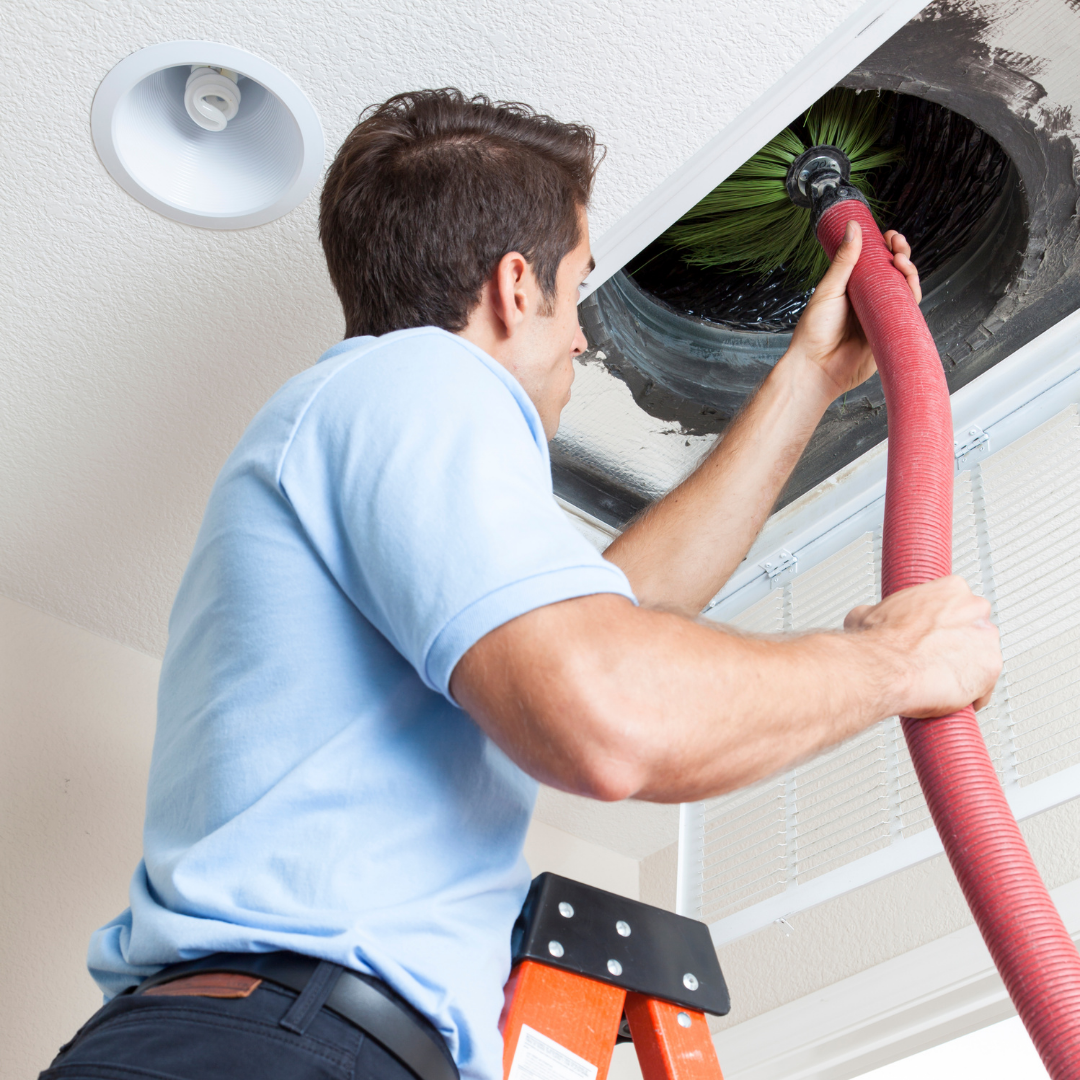
Innovations in Allergen-Resistant Flooring
New flooring options can help you breathe easier in your Phoenix home. Hypoallergenic flooring is designed to reduce allergens like dust, pet dander, and pollen.
These floors use materials that don't trap particles. They're also easy to clean, which keeps allergens from building up.
Some key innovations in allergen-resistant flooring include:
- Antimicrobial treatments
- Non-porous surfaces
- Low VOC emissions
- Easy-to-clean finishes
Laminate flooring offers a good mix of style and allergy protection. It looks like wood but doesn't trap allergens. With proper care, it's a smart choice for allergy sufferers.
Tile and vinyl are other good options. They don't hold onto dust and are simple to wipe clean. Some new types even have built-in antimicrobial properties.
For those who prefer carpet, hypoallergenic carpets are now available. These use special fibers that repel allergens and are easier to clean thoroughly.
Regular cleaning is key for any flooring type. Use a microfiber mop daily to pick up dust and allergens. This simple step can make a big difference in your home's air quality.
Conclusion
Choosing the right flooring can make a big difference for your allergies in Phoenix. Hard surfaces like wood or tile are easier to keep clean. They don't trap dust and pollen like carpet does.
Regular cleaning is key no matter what floor you have. Vacuum and mop often to remove allergens. Use air filters to catch tiny particles floating in the air.
For expert help with allergy-friendly flooring, consider Phoenix Flooring Company. We offer many options that resist allergens. Our team can guide you to the best choice for your home.
With the right floors and cleaning habits, you can breathe easier. Your Phoenix home can become a more comfortable place, even during allergy season.
